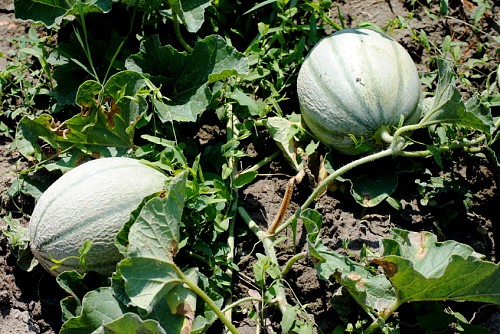Reasons Why Plants Don't Produce Fruit
By this time of year, gardeners across the country are either already harvesting fruit and vegetable crops, or eagerly awaiting the first harvest of the season. While we hear stories about people's gardens producing so much zucchini that they fill neighbors' cars with it as a prank, an increasing number of gardeners are experiencing lower yields of fruits from their gardens. Why would a plant flower, and then not bear fruit? How can it be remedied?

Inadequate Pollination is a Problem
One reason that plants do not produce fruit is inadequate pollination. Most food crops require pollination in order to yield fruit or seeds. A major sign of inadequate pollination is when plants produce plenty of flowers, but barely any fruit. Squash, zucchini, melons, cucumbers, apple trees, and almond trees are examples of plants that rely heavily on pollinators in order to bear fruit.
Attracting Pollinators
It's important to attract pollinators to your garden by establishing a bee-friendly landscape. Pollinators like native, perennial plants. Beesource, an online community for beekeepers and beekeeping, publishes a great chart of nectar and pollen plants, organized by region. It's a good idea to consult with either an agricultural extension expert, or member of your local native plants society, in order to find out which plants will be most beneficial for gardens in your area. Part of the plan needs to be planting a garden that blooms in all four seasons, including in winter. If you suspect that your plants are not being pollinated by natural pollinators, you should look into manual pollination.
Severe Weather and How to Compensate
Another reason why your plants might be under-producing is the weather. Unusually hot, cold, dry, or wet conditions can interfere with fruit production. Wind and heat can dry out soil and scorch plants. Excess moisture may cause mold and fungus growth on plants, and also may attract and keep certain pests around. Frost is capable of damaging the flower buds and blooms of fruiting plants to the extent that the plants will not bear fruit. You might need to be protecting plants in cold weather, or watering them more if they're getting brown in high heat.
Too Much or Too Little Fertilizer
Excessive or insufficient fertilization is another reason why plants have smaller yields of fruit, or none at all. Before you fertilize your garden, it is important to have a soil analysis done by your local cooperative extension, so that you know which nutrients your soil needs, and which nutrients it already has in rich amounts. If soil analysis is not a possibility for you, consider simply layering a small amount of compost under mulch of straw or a similar material. Compost and straw mulch improve the quality of most home gardens. To avoid over-fertilizing, go light on the compost and heavier on the straw mulch. Cover crops can also restore nutrients to tired soil.
For more garden solutions, find a reliable landscaper in your area.
Chaya Kurtz writes for Networx.com.
Updated January 16, 2018.
Looking for a Pro? Call us (866) 441-6648

Landscaping Average Costs
Landscapers Experiences

Contracted A Large Tree Trimming Job For A Reasonable Price

“Stealth” Tree Trimming Was An Incredibly Clean Job



